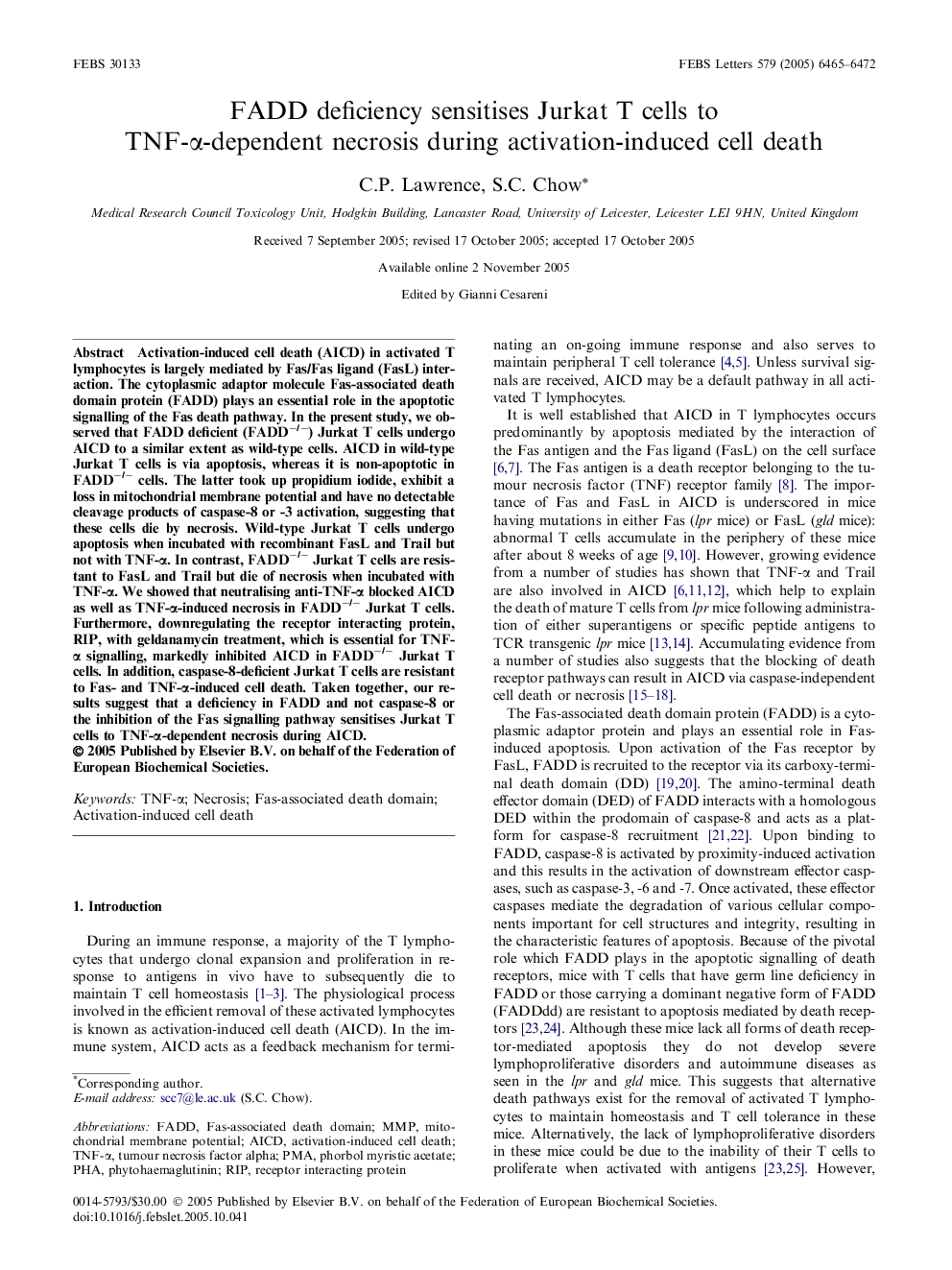| Article ID | Journal | Published Year | Pages | File Type |
|---|---|---|---|---|
| 2051804 | FEBS Letters | 2005 | 8 Pages |
Activation-induced cell death (AICD) in activated T lymphocytes is largely mediated by Fas/Fas ligand (FasL) interaction. The cytoplasmic adaptor molecule Fas-associated death domain protein (FADD) plays an essential role in the apoptotic signalling of the Fas death pathway. In the present study, we observed that FADD deficient (FADD−/−) Jurkat T cells undergo AICD to a similar extent as wild-type cells. AICD in wild-type Jurkat T cells is via apoptosis, whereas it is non-apoptotic in FADD−/− cells. The latter took up propidium iodide, exhibit a loss in mitochondrial membrane potential and have no detectable cleavage products of caspase-8 or -3 activation, suggesting that these cells die by necrosis. Wild-type Jurkat T cells undergo apoptosis when incubated with recombinant FasL and Trail but not with TNF-α. In contrast, FADD−/− Jurkat T cells are resistant to FasL and Trail but die of necrosis when incubated with TNF-α. We showed that neutralising anti-TNF-α blocked AICD as well as TNF-α-induced necrosis in FADD−/− Jurkat T cells. Furthermore, downregulating the receptor interacting protein, RIP, with geldanamycin treatment, which is essential for TNF-α signalling, markedly inhibited AICD in FADD−/− Jurkat T cells. In addition, caspase-8-deficient Jurkat T cells are resistant to Fas- and TNF-α-induced cell death. Taken together, our results suggest that a deficiency in FADD and not caspase-8 or the inhibition of the Fas signalling pathway sensitises Jurkat T cells to TNF-α-dependent necrosis during AICD.
